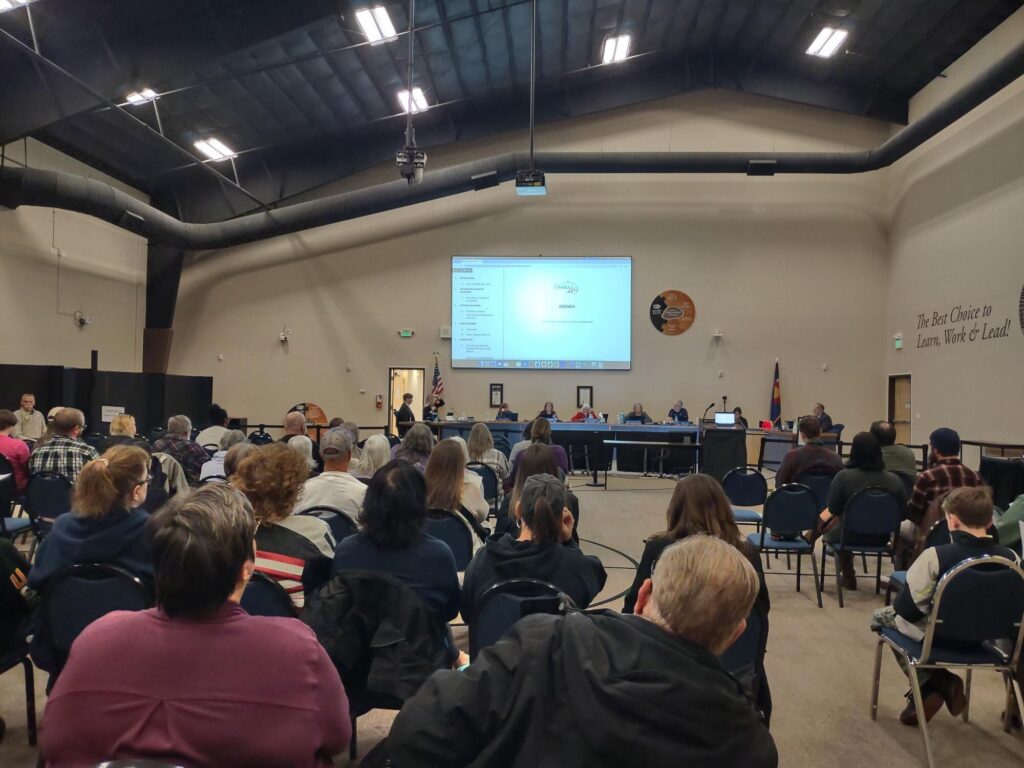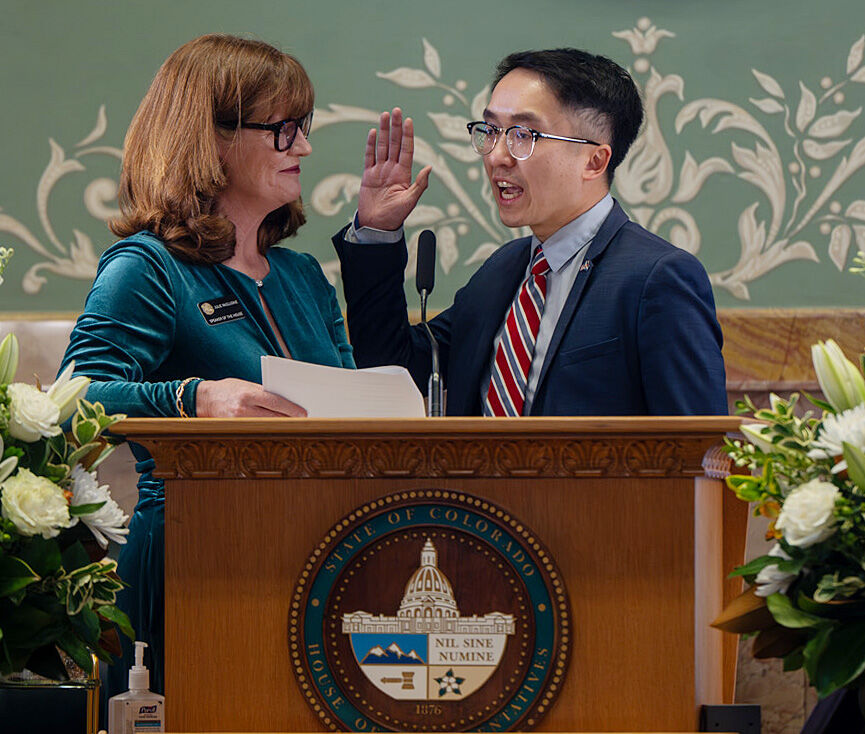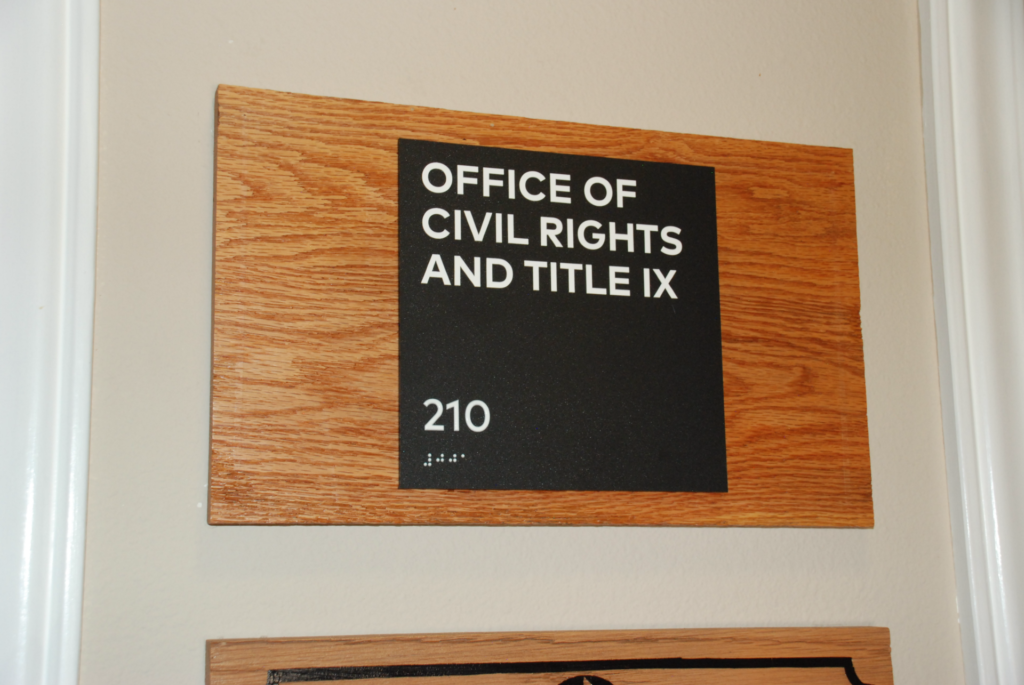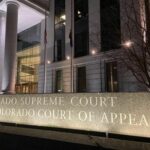Colorado education board skeptical of DPS decision to revoke Beacon’s innovation status
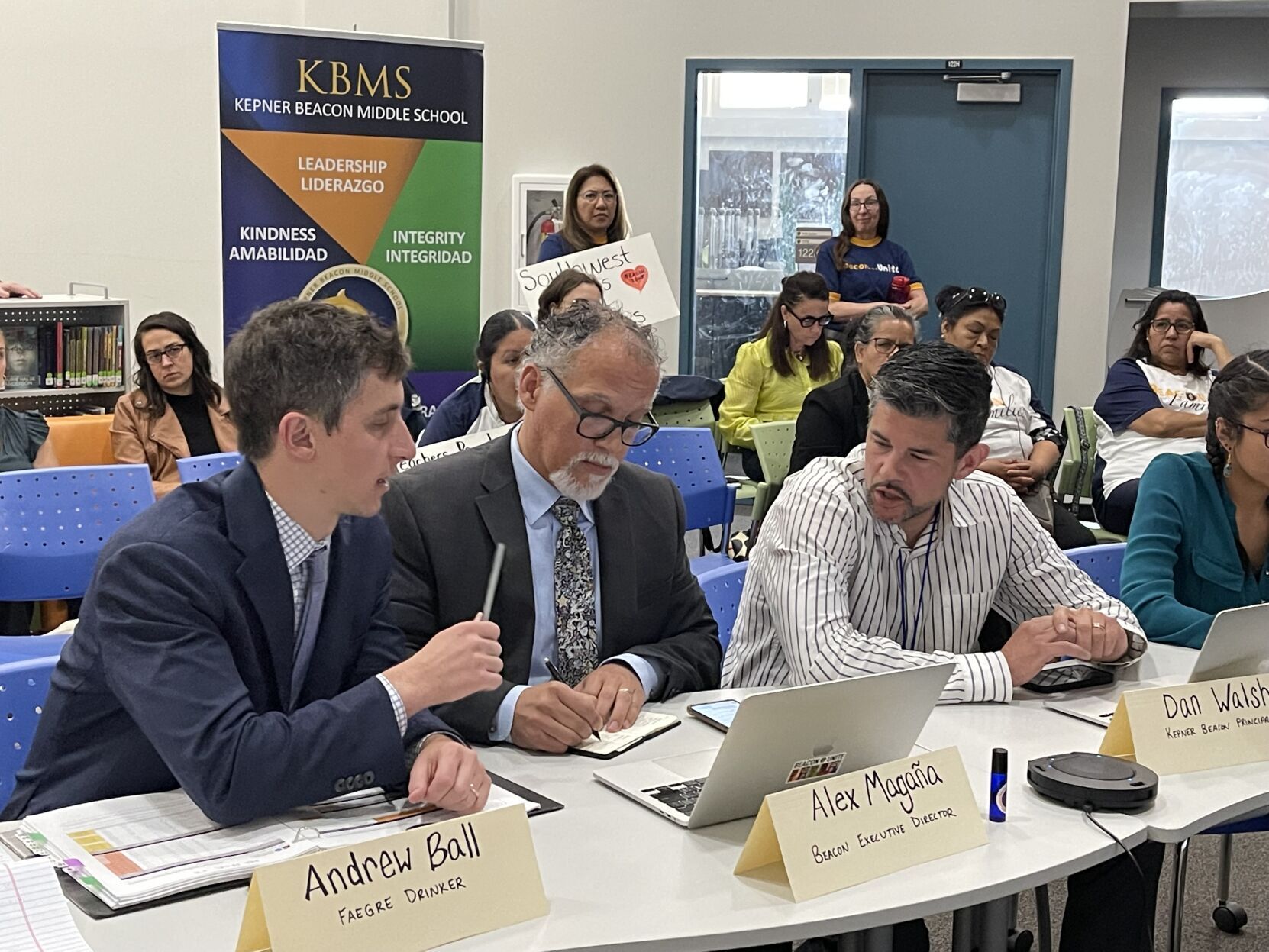
Beacon Innovation Zone and Denver Public Schools presented their arguments to the Colorado State Board of Education on Thursday in the first test of a new law that allows for a review of the district’s decision to revoke the network’s innovation zone status.
DPS officials have maintained that poor academic performance and financial oversight led to Superintendent Alex Marrero recommending and the district’s board approving, in a split vote, to revoke Beacon’s zone status.
But state board members appeared skeptical of DPS’ points, with one official suggesting it’s all about “control.”
Under the district’s management next school year, everything would remain the same at Grant Beacon and Kepner Beacon Middle schools, DPS officials said.
“We’re not intending to change anything that’s working,” said Jon Fero, the outside council representing DPS. “What we want to see is an improvement in results.”
State board members weren’t buying it.
The majority of the nine-member board said – while respecting the local district’s authority – they believe the Beacon Innovation Zone should have two-to-three years to regain its footing after the COVID-19 pandemic shuttered schools and saw academic performance suffer statewide.
“I also feel that the timing is very inopportune,” said State Board Member Debora Scheffel, R-Parker. “Everyone knows that the learning loss in the pandemic has been substantial.”
Scheffel said she also believes that the Beacon model “showed great progress before the pandemic.”
“I think it’s a model that deserves additional time,” she added.
The remarks from State Board Member Steve Durham, R-Colorado Springs, were more pointed.
“I really find the Denver administration not terribly credible,” Durham said.
Durham added, “If the district really believed the performance was the issue, they would not retain those who they are accusing of underperforming. I think the motive is really one of control and not one of academic performance.”
Nearly two dozen family members and former students at Kepner Beacon Middle School, who attended the virtual hearing, erupted into applause.
State board members were heartened by the show of support, saying parental involvement is one of the keys to long-term academic success.
Each side had 20 minutes to present.
The state board then peppered Beacon and DPS officials with questions for an hour before they began deliberating.
Beacon’s appeal to the state is precedent setting.
Last year, state lawmakers approved a new law designed to give innovation schools and innovation zones, or iZones comprised of multiple schools, recourse when disagreements with district decisions arise.
Under provisions in the new law, an innovation school or iZone may appeal to the state for review and comment.
It is this new law – which Marrero opposed – that is the grounds for Beacon’s appeal.
The law does not permit the State Board of Education to override the local board, in this case DPS. But it does require the DPS board to put the state decision on its next agenda for public discussion.
The Innovation Schools Act of 2008 provides autonomy structures similar to charter schools, which enjoy some advantages not available to traditional schools. Under the law, a public school can request innovation status from its local school board to implement more flexible programs to meet student needs. Groups of innovation schools may apply to become an “Innovation School Zone,” which operates under a separate governing board.
Beacon was formed as an innovation zone in collaboration with DPS in 2018 to support Grant and Kepner middle schools.
Excluding Beacon, DPS has two iZones and about 50 innovation schools.
Stripped of its iZone status, the Beacon Zone Board appealed to the state on May 3 for a review and recommendation. Beacon officials also filed a lawsuit to prevent the zone’s dissolution, while the state process plays out.
The state board was required to hold a public hearing within 60 days of a written request.
Andrew Ball, Beacon’s attorney, said he expects to receive a written recommendation from the state board by the end of the month.
Beacon Zone Board President Eliot Lewis said he is taking a wait and see approach.
“Because it’s non binding, I don’t have high expectations that they’re probably going to change their mind,” Lewis said. “But, I’m hoping for the best.”
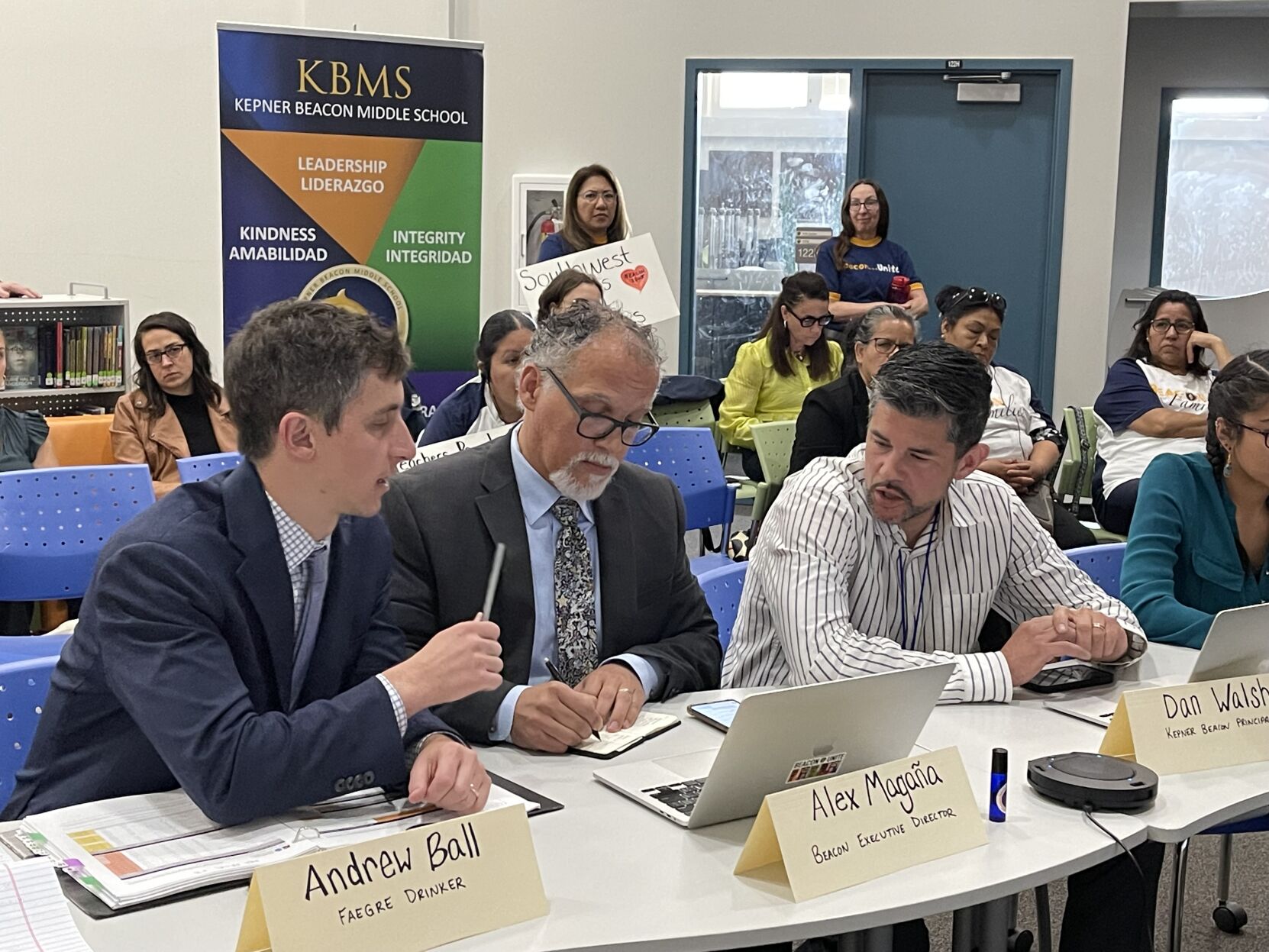
nico.brambila@denvergazette.com
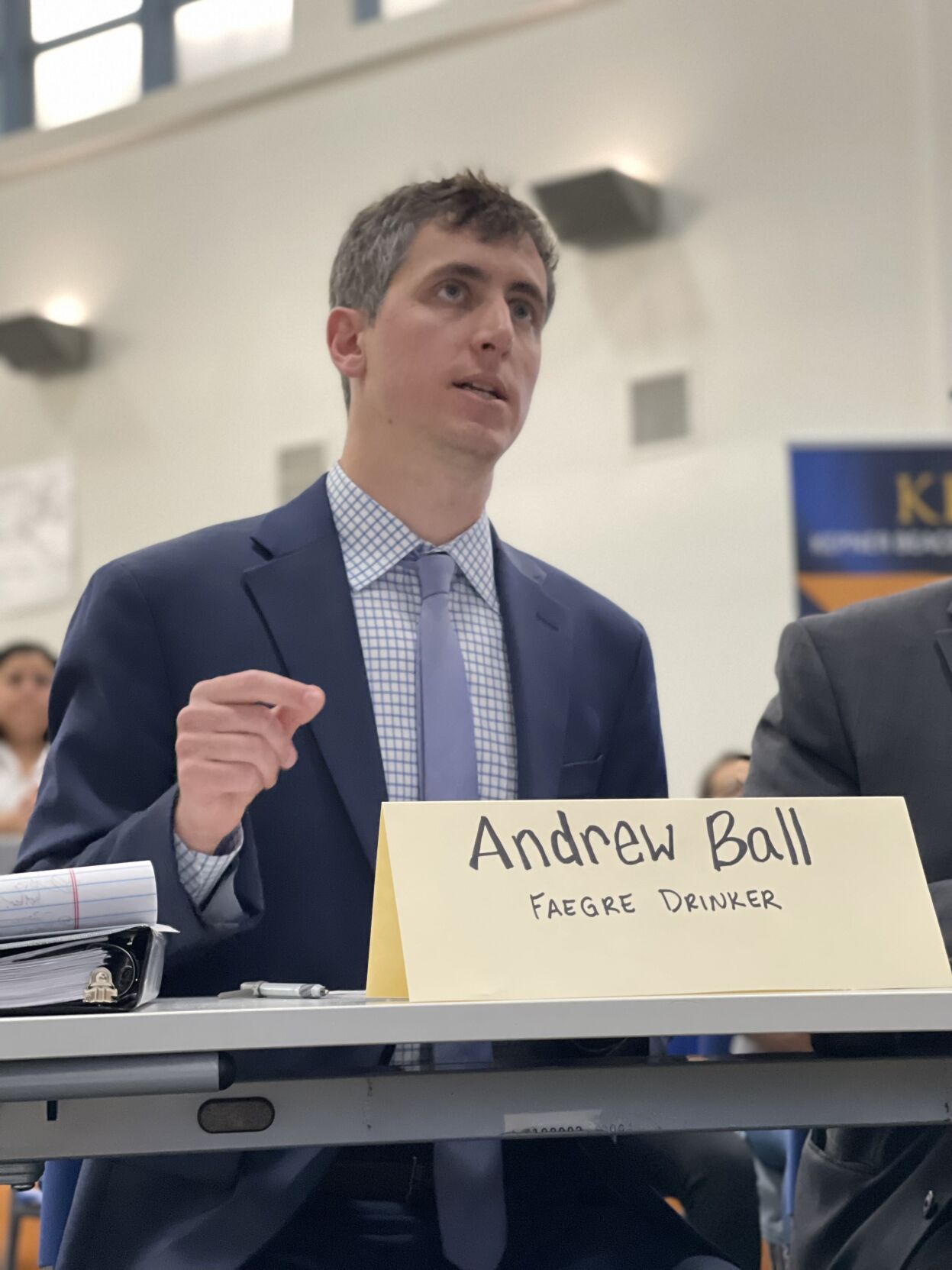
nico.brambila@denvergazette.com


